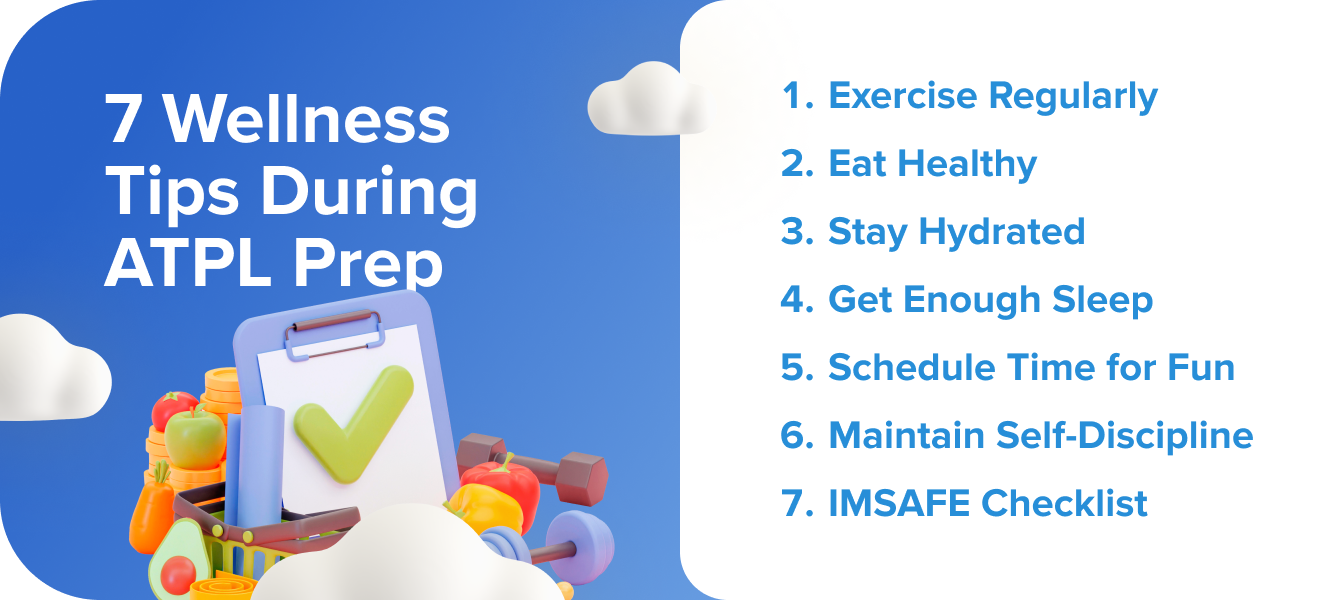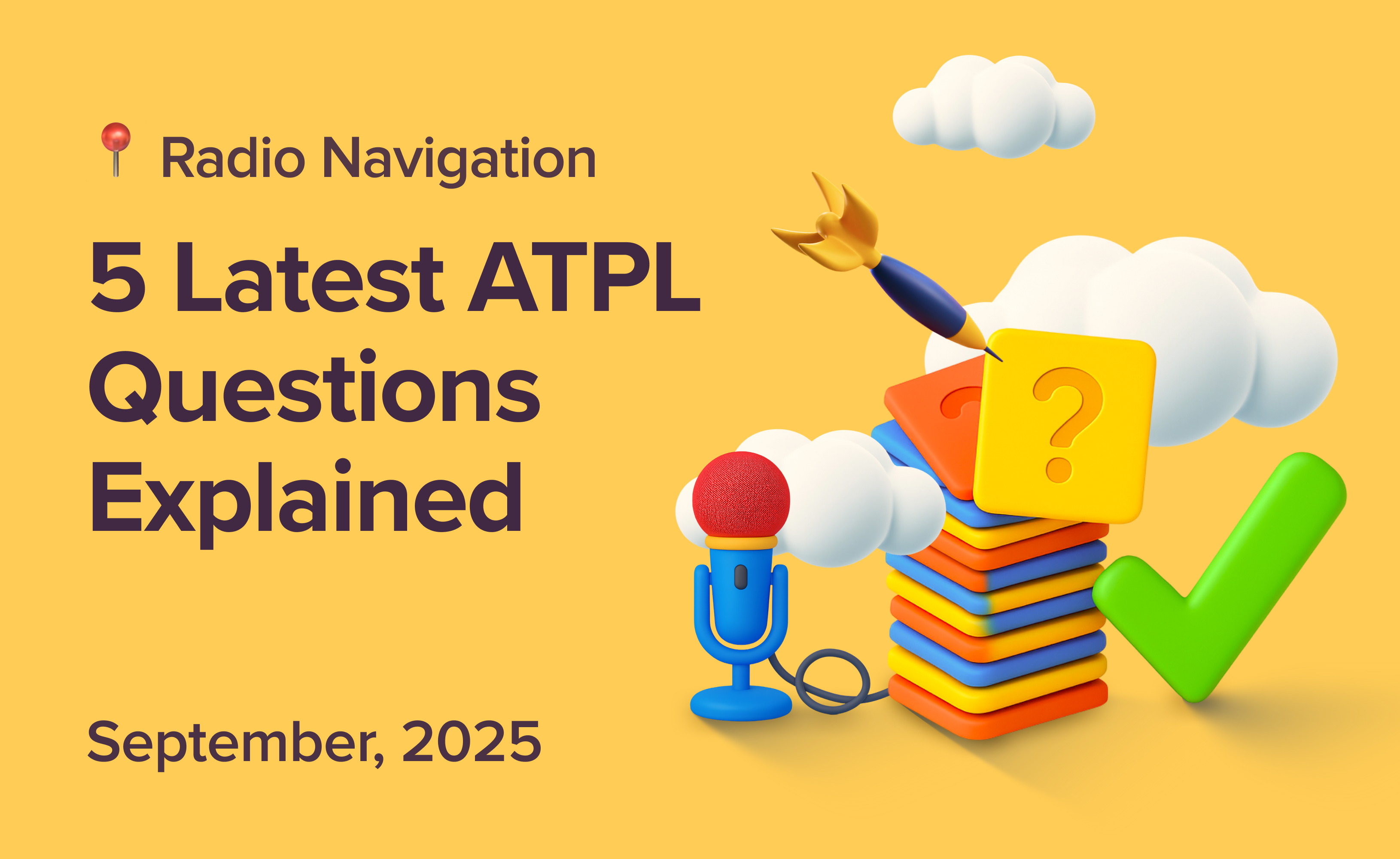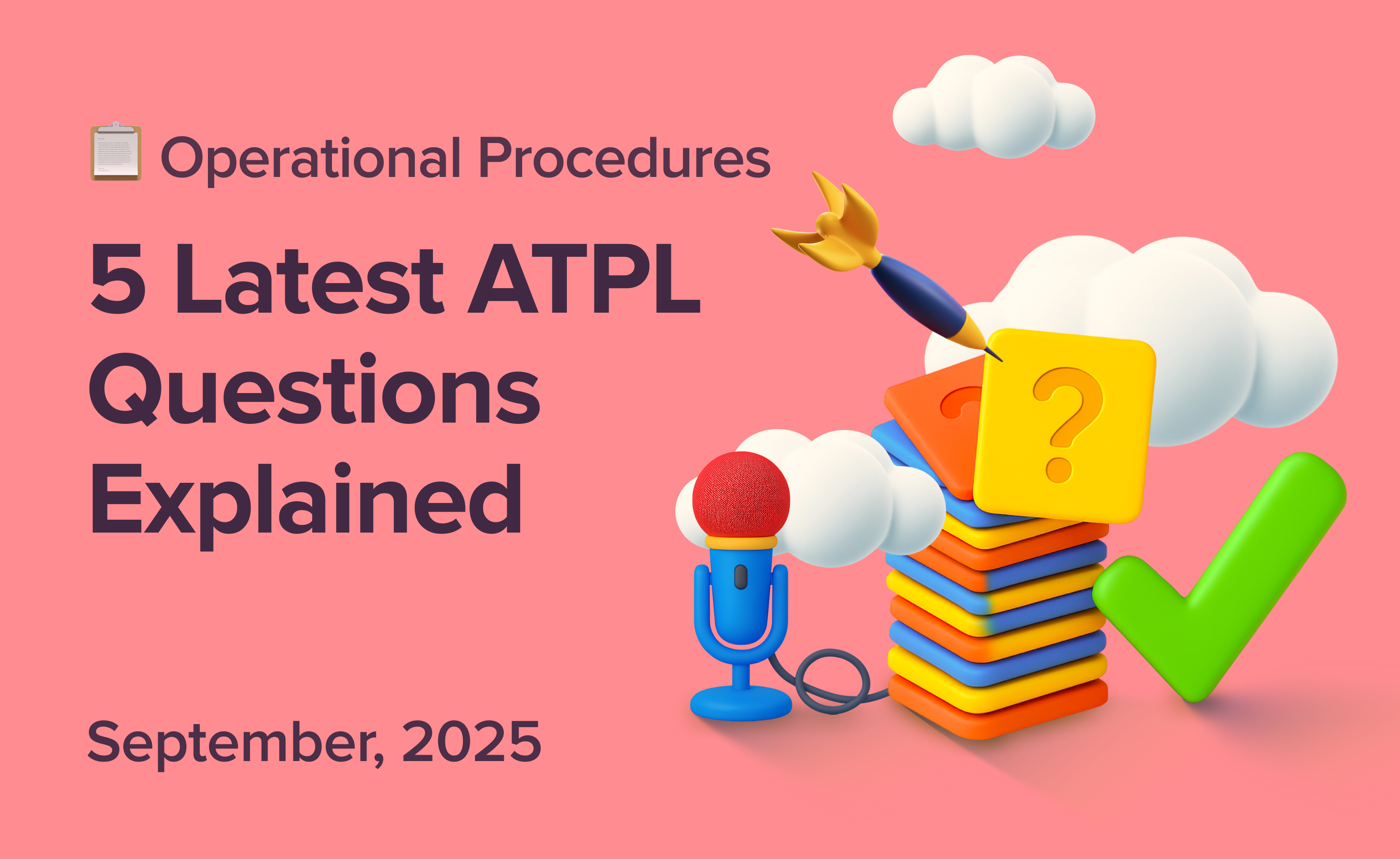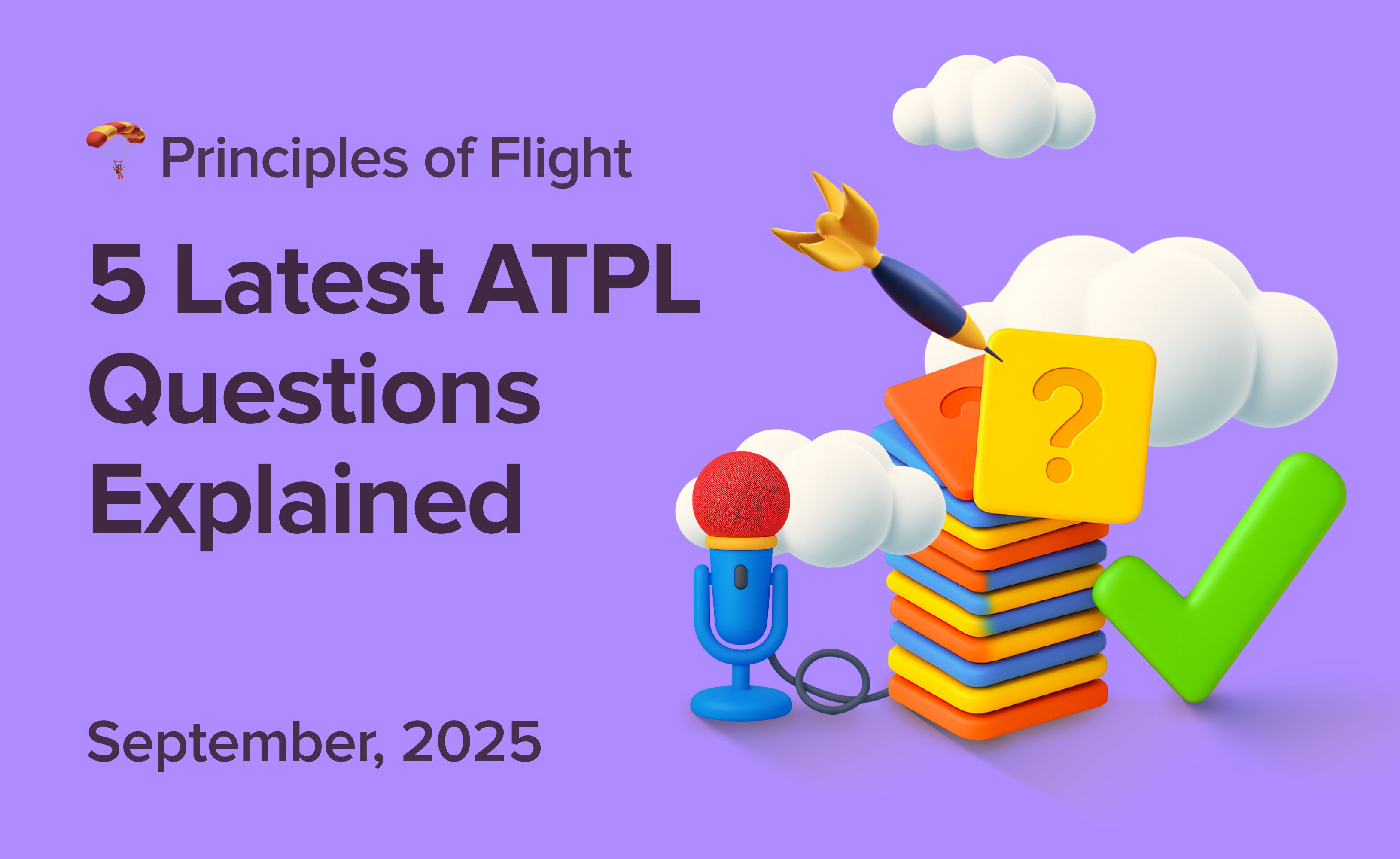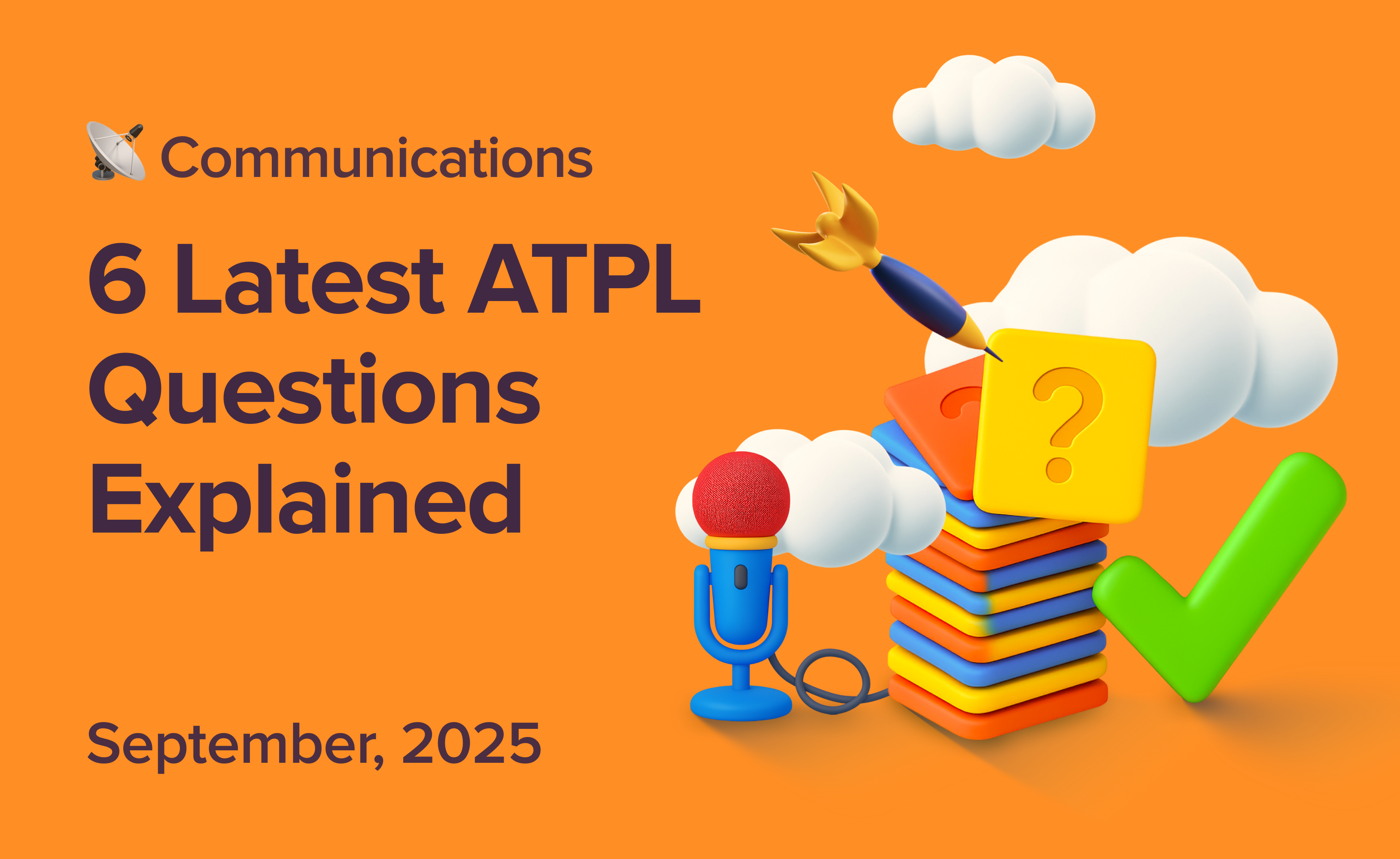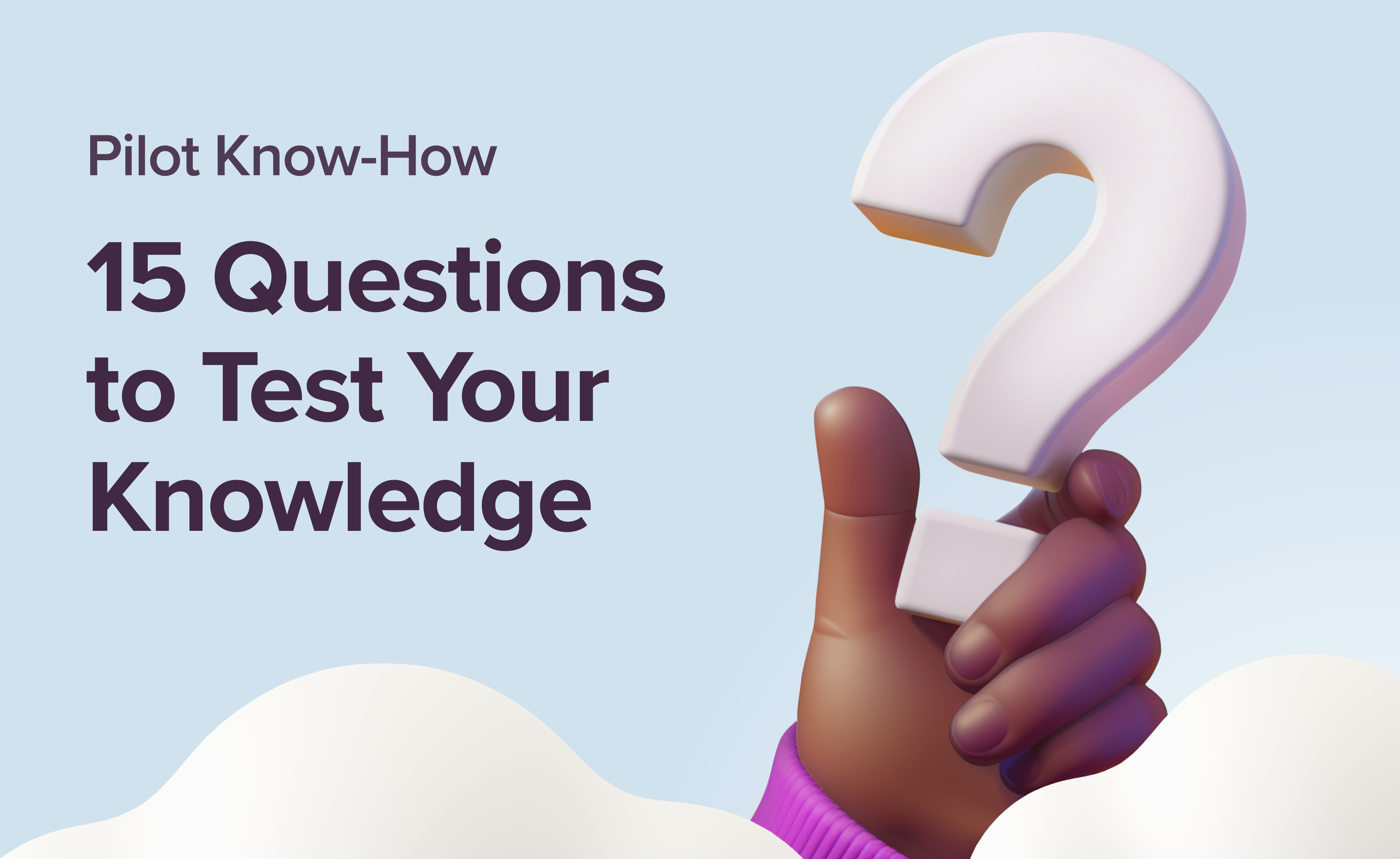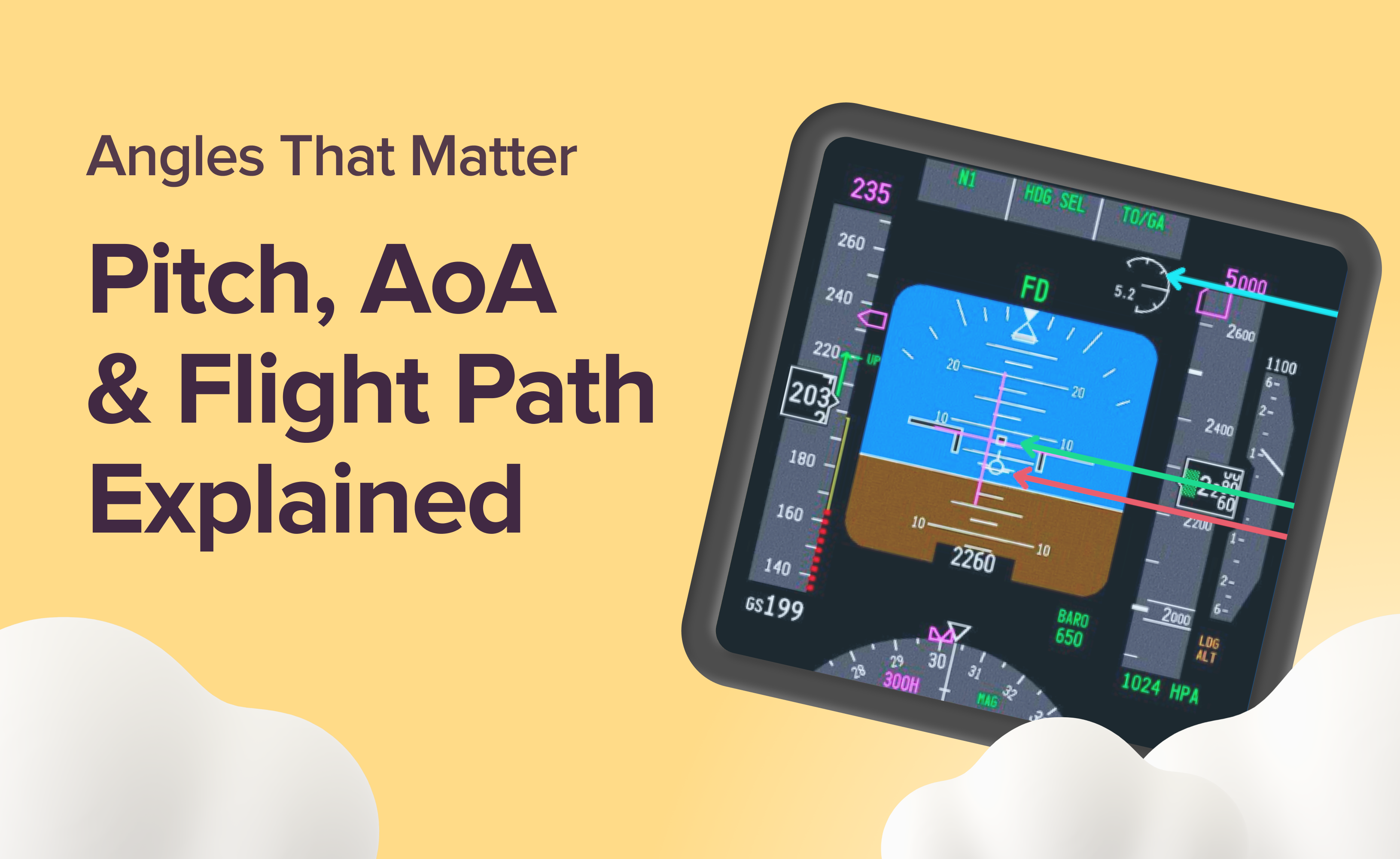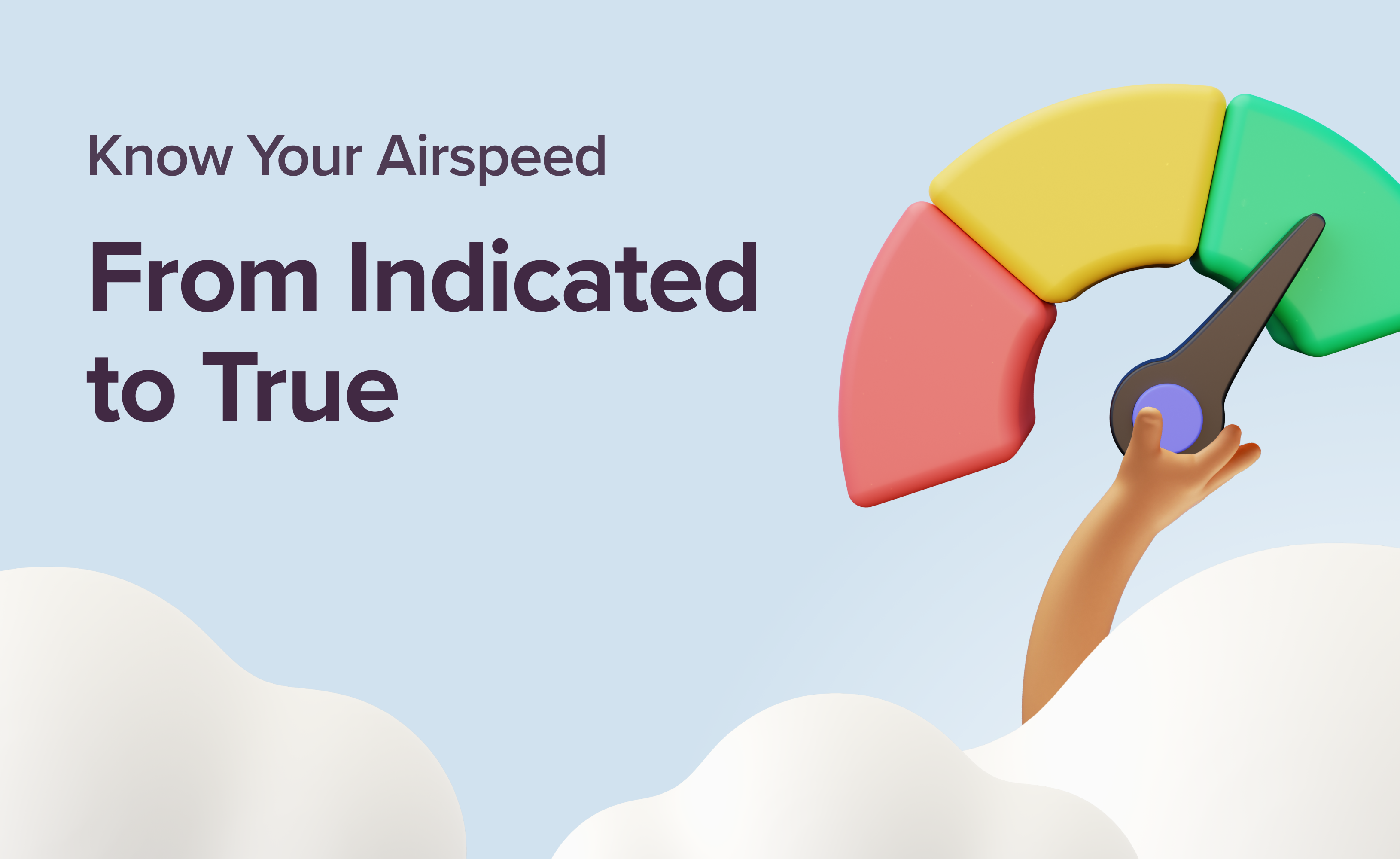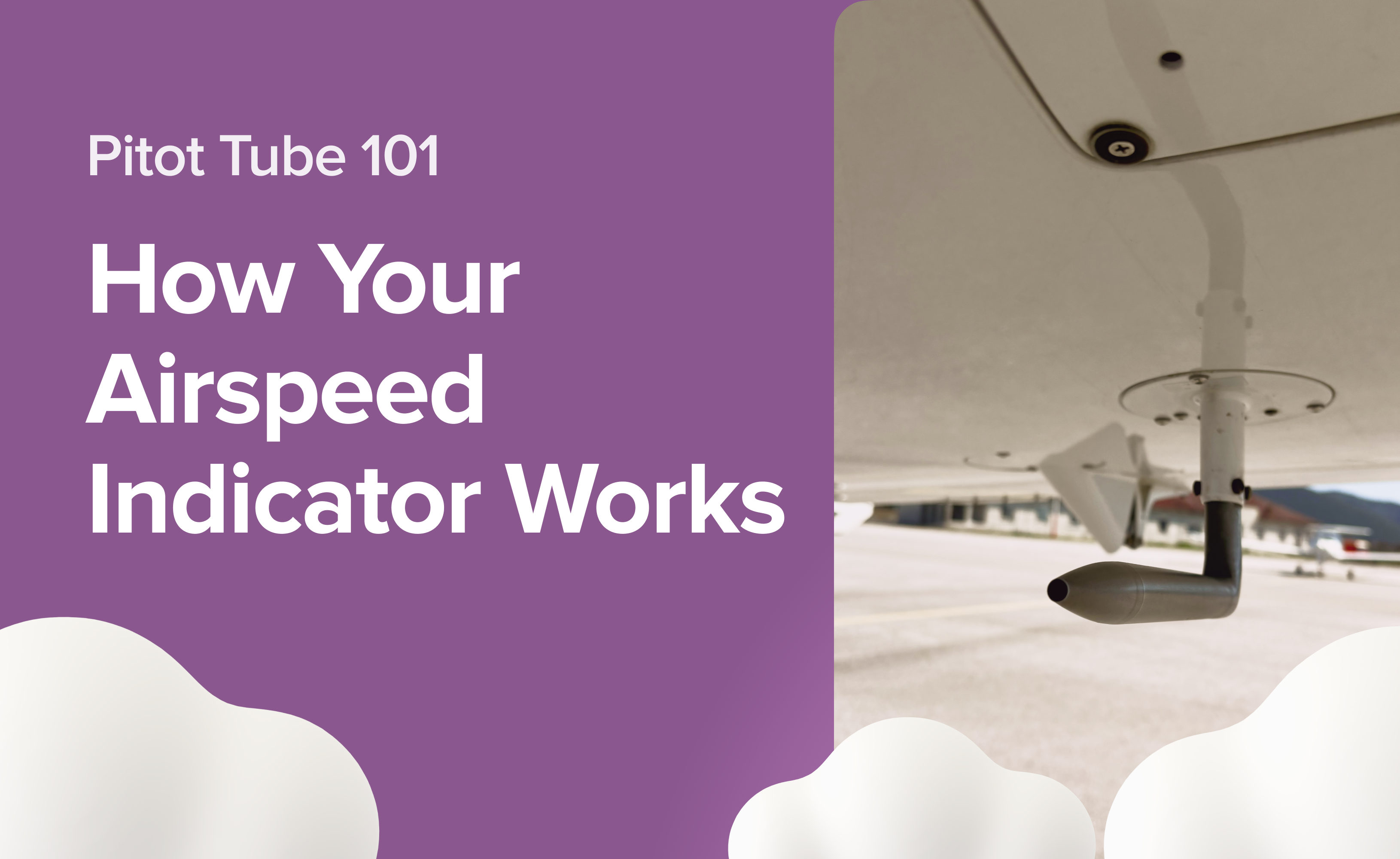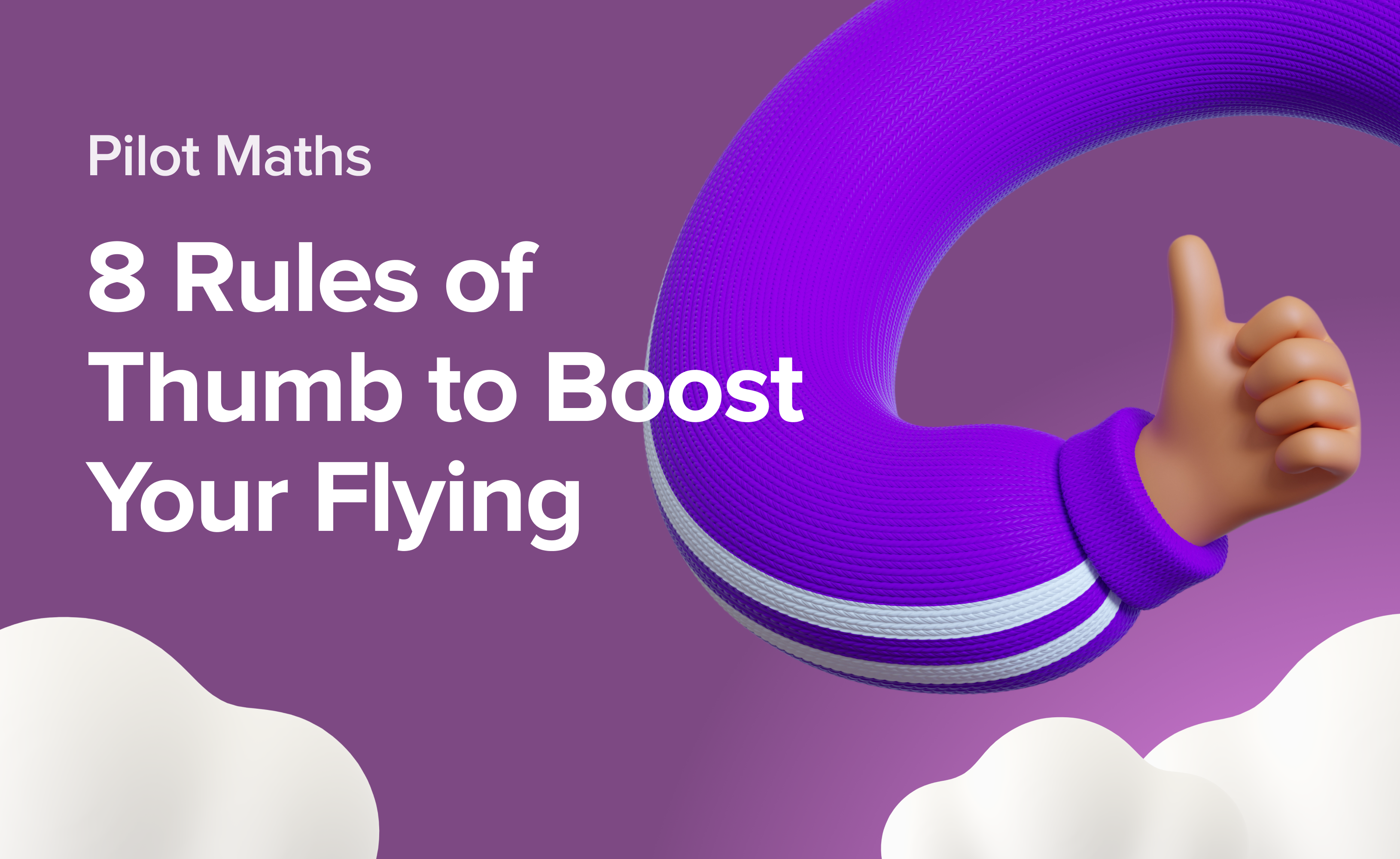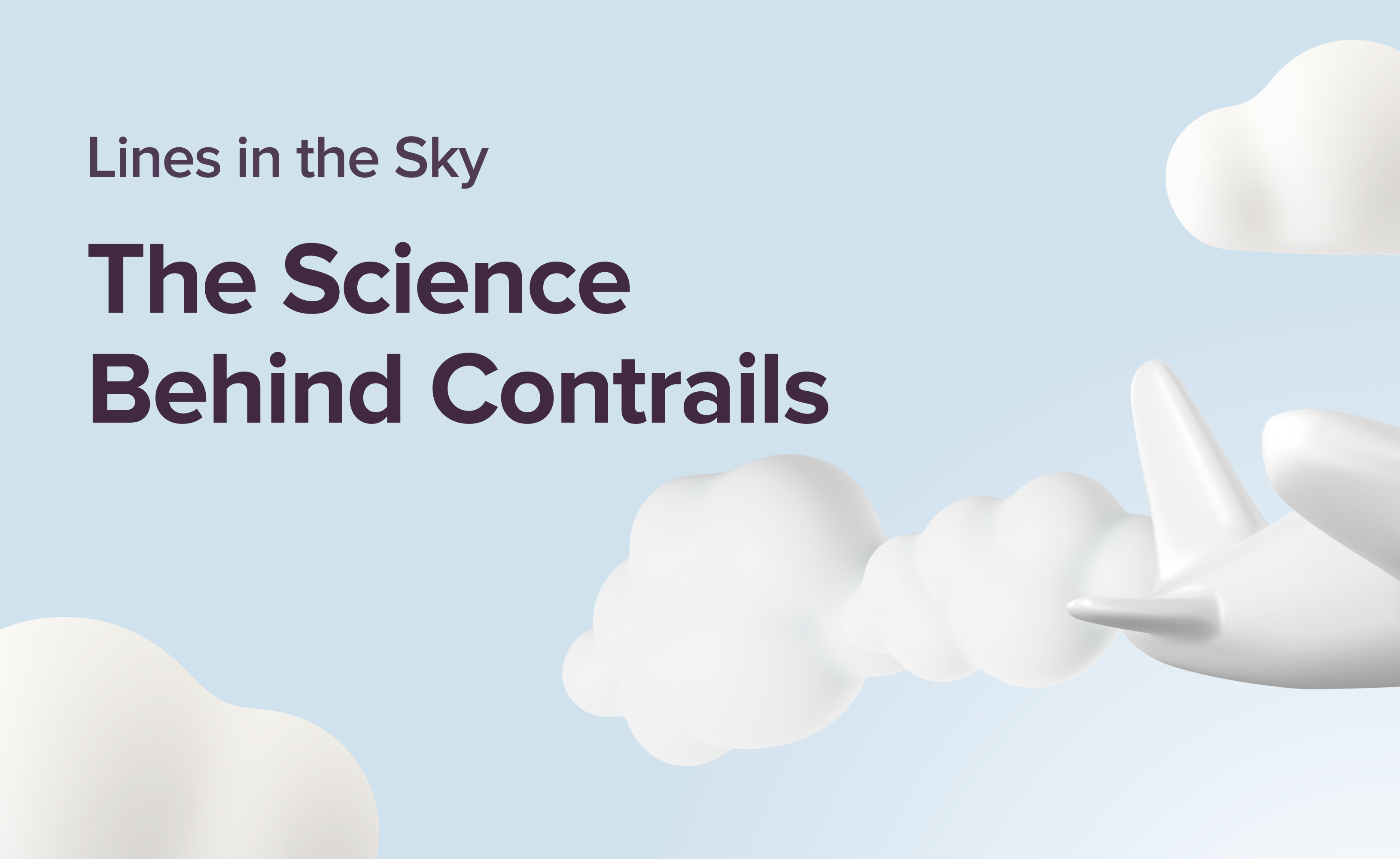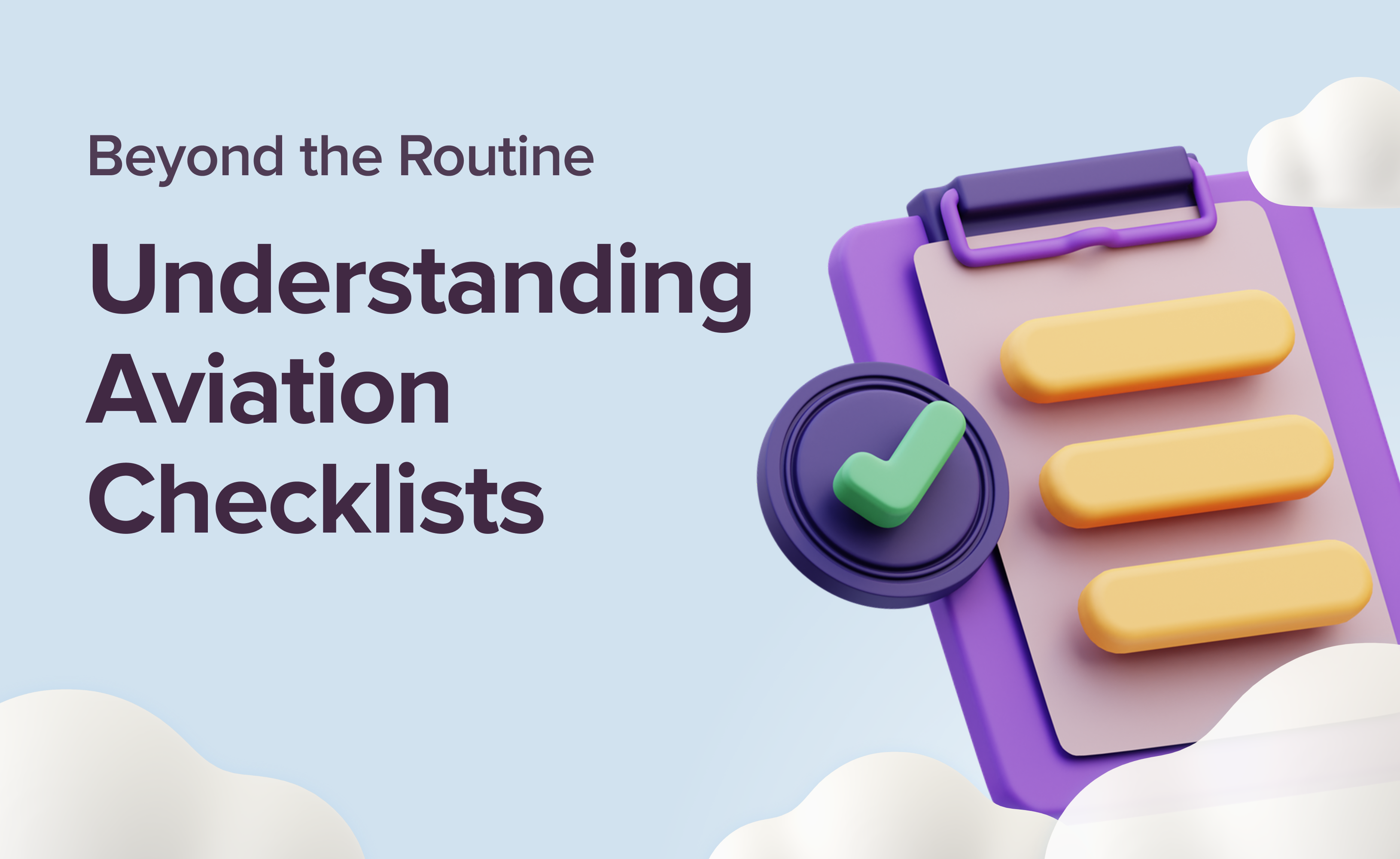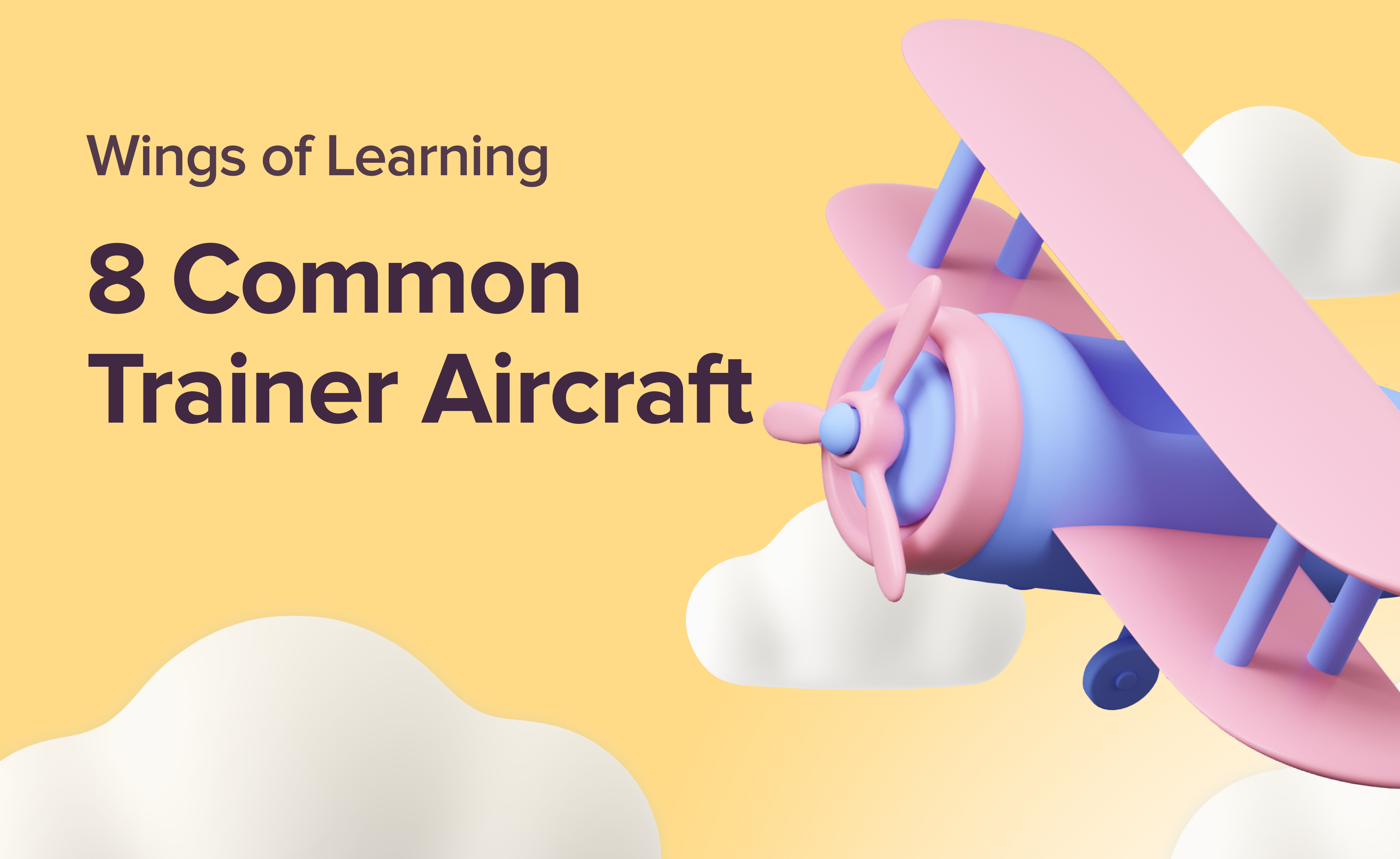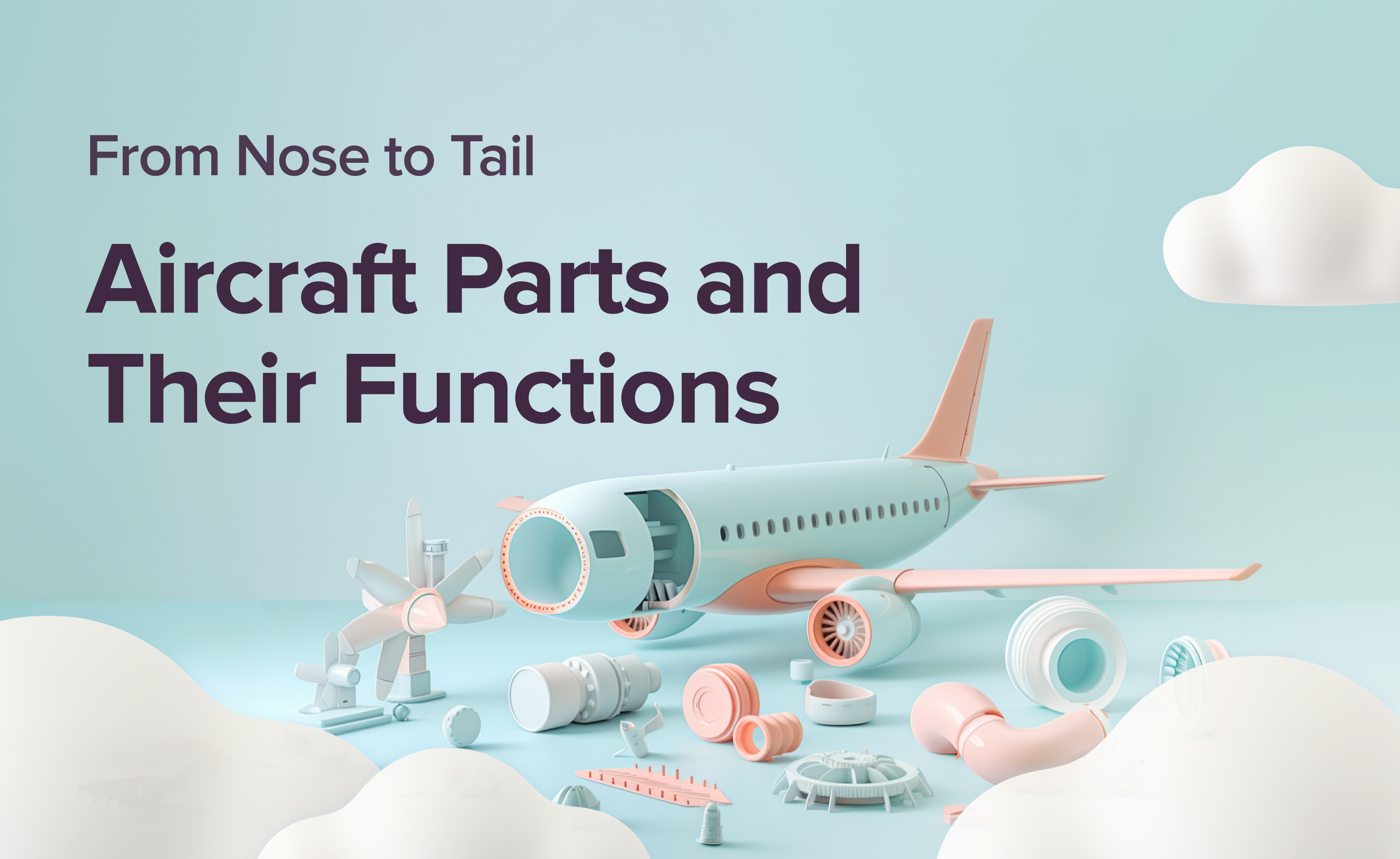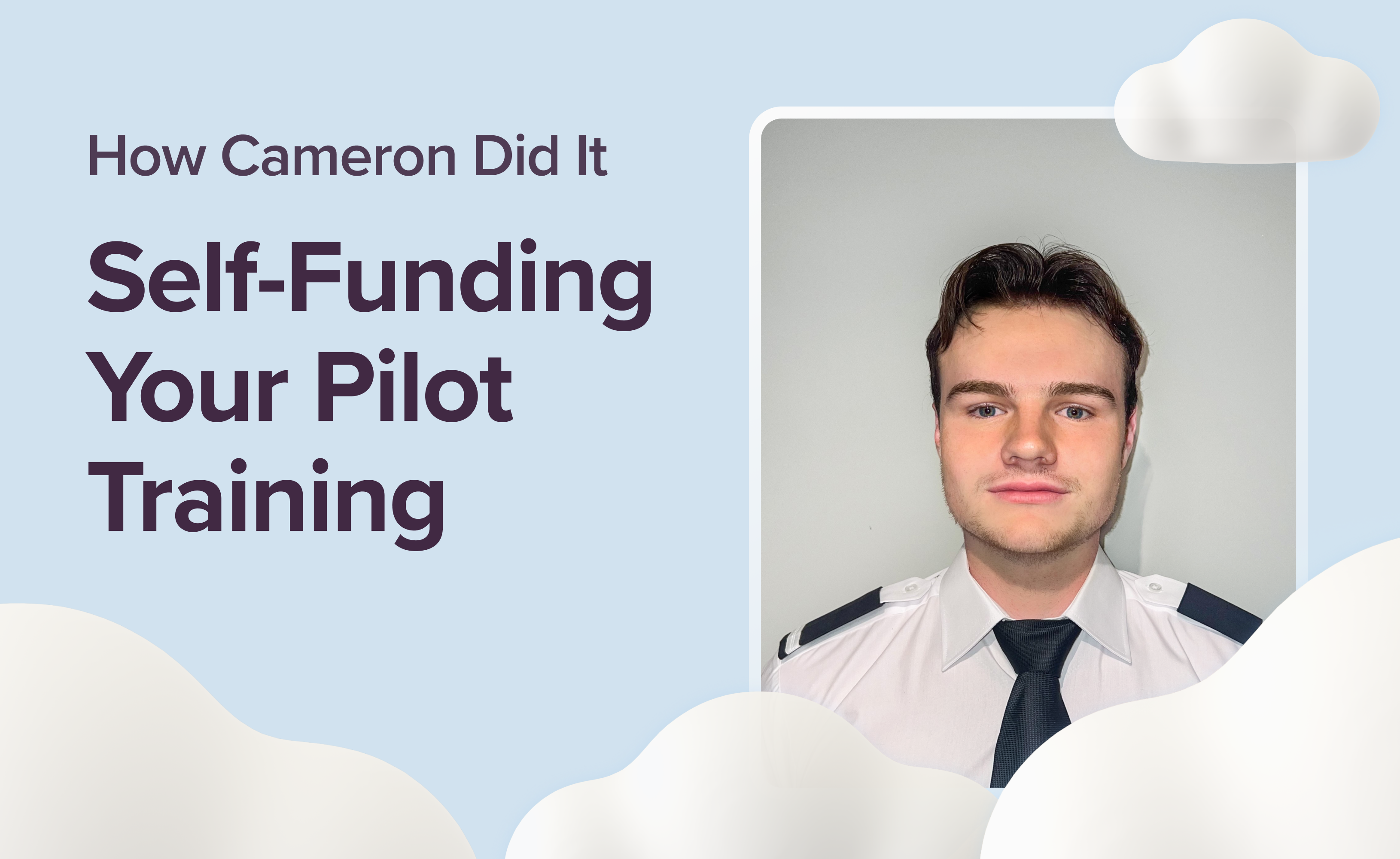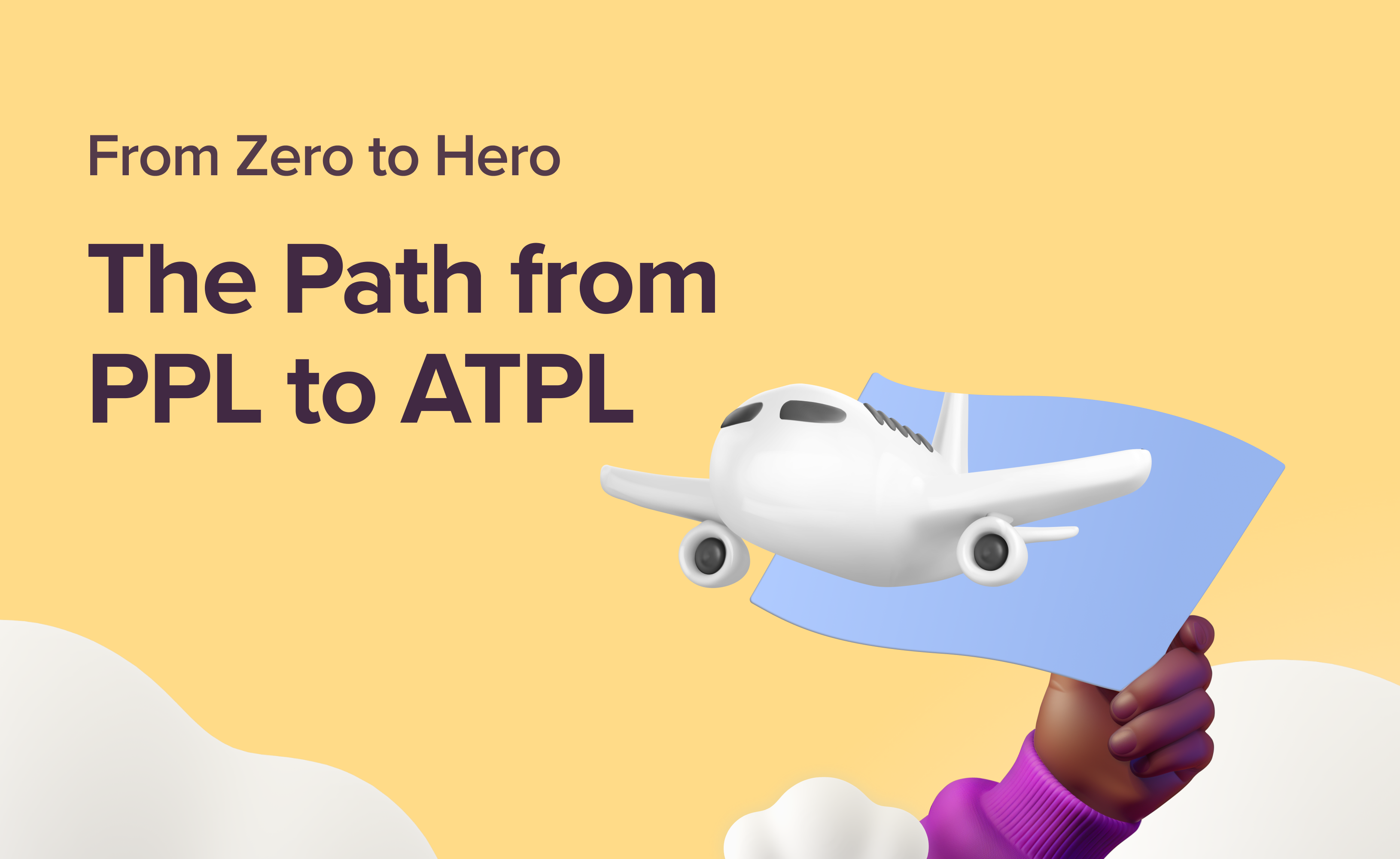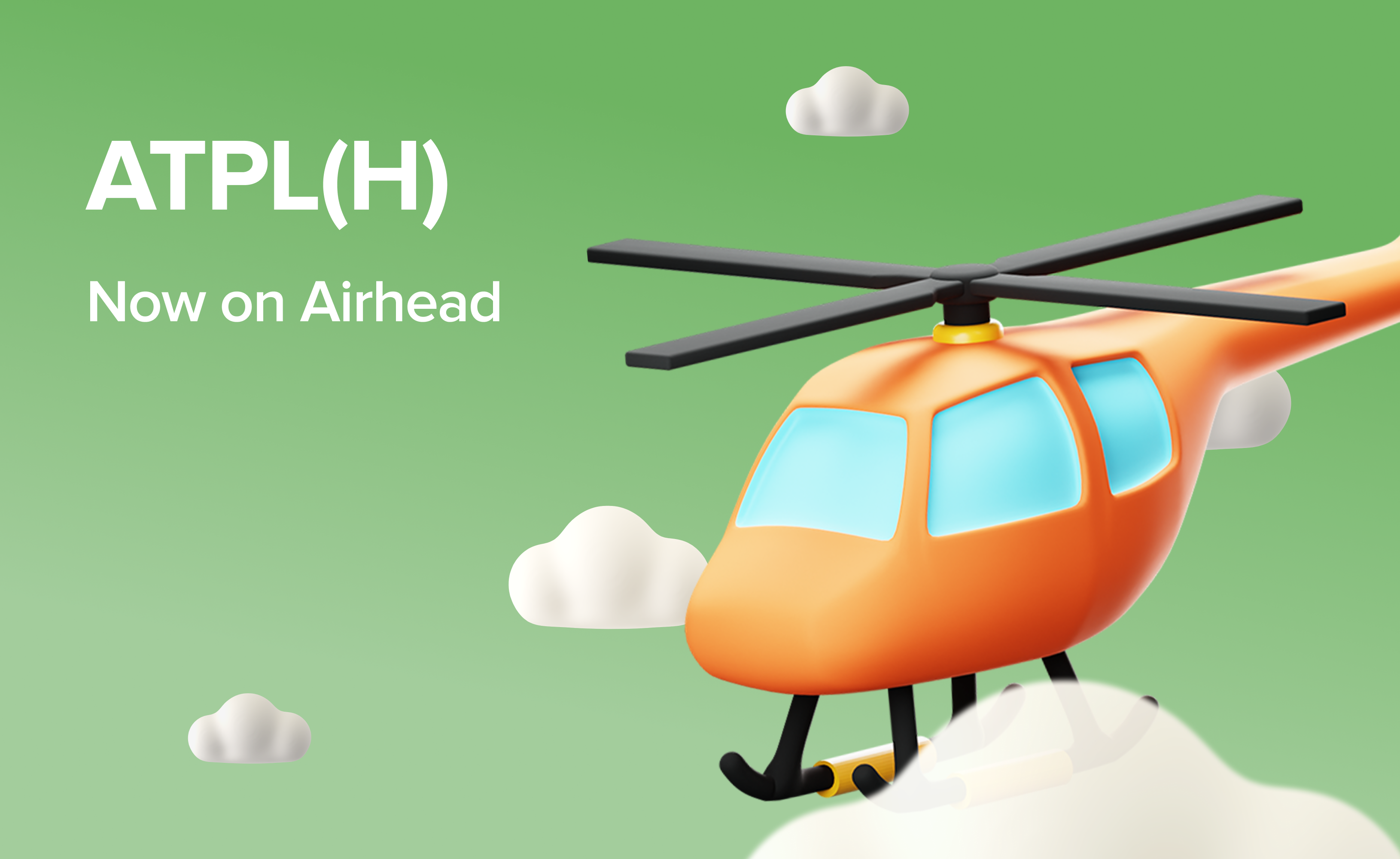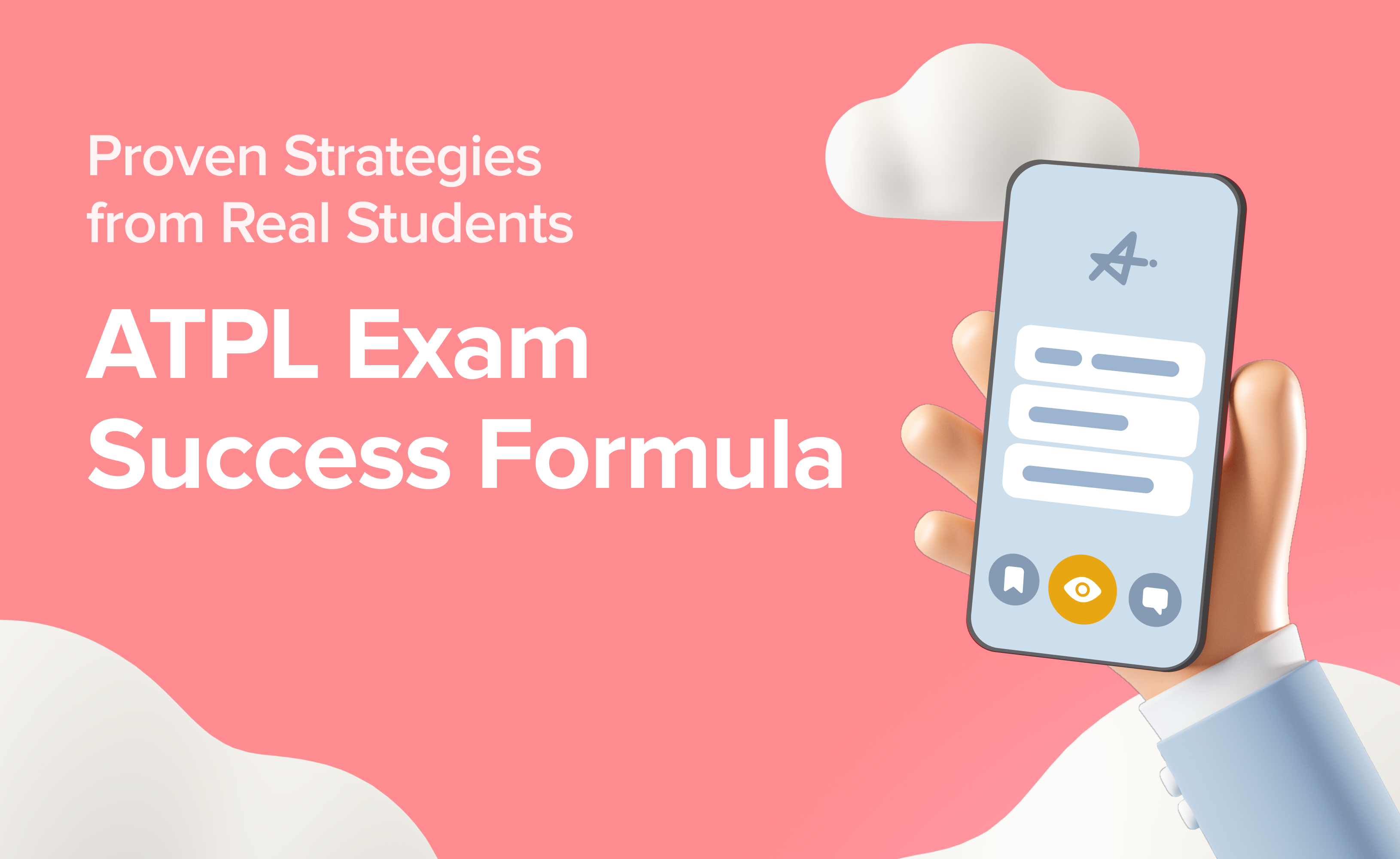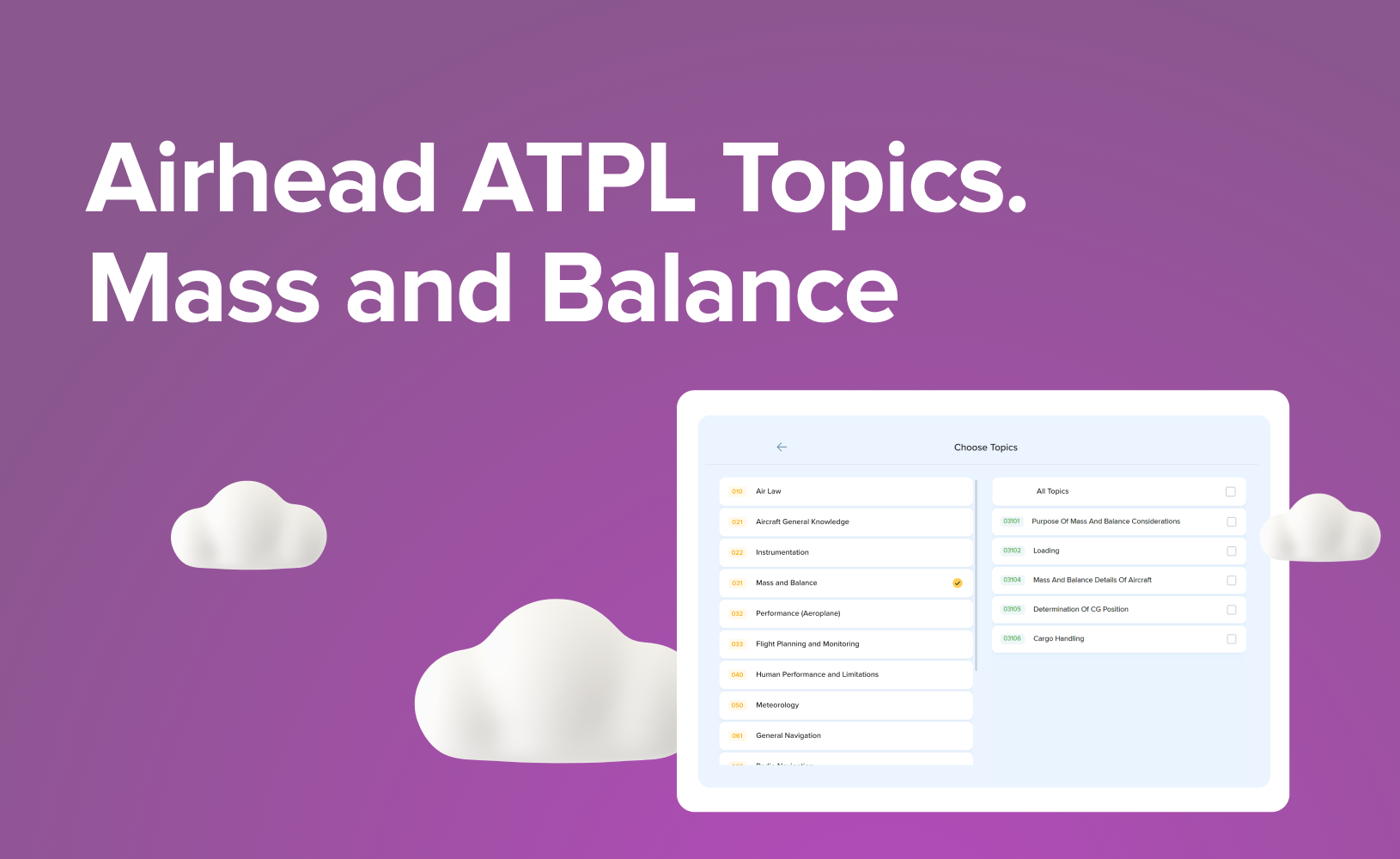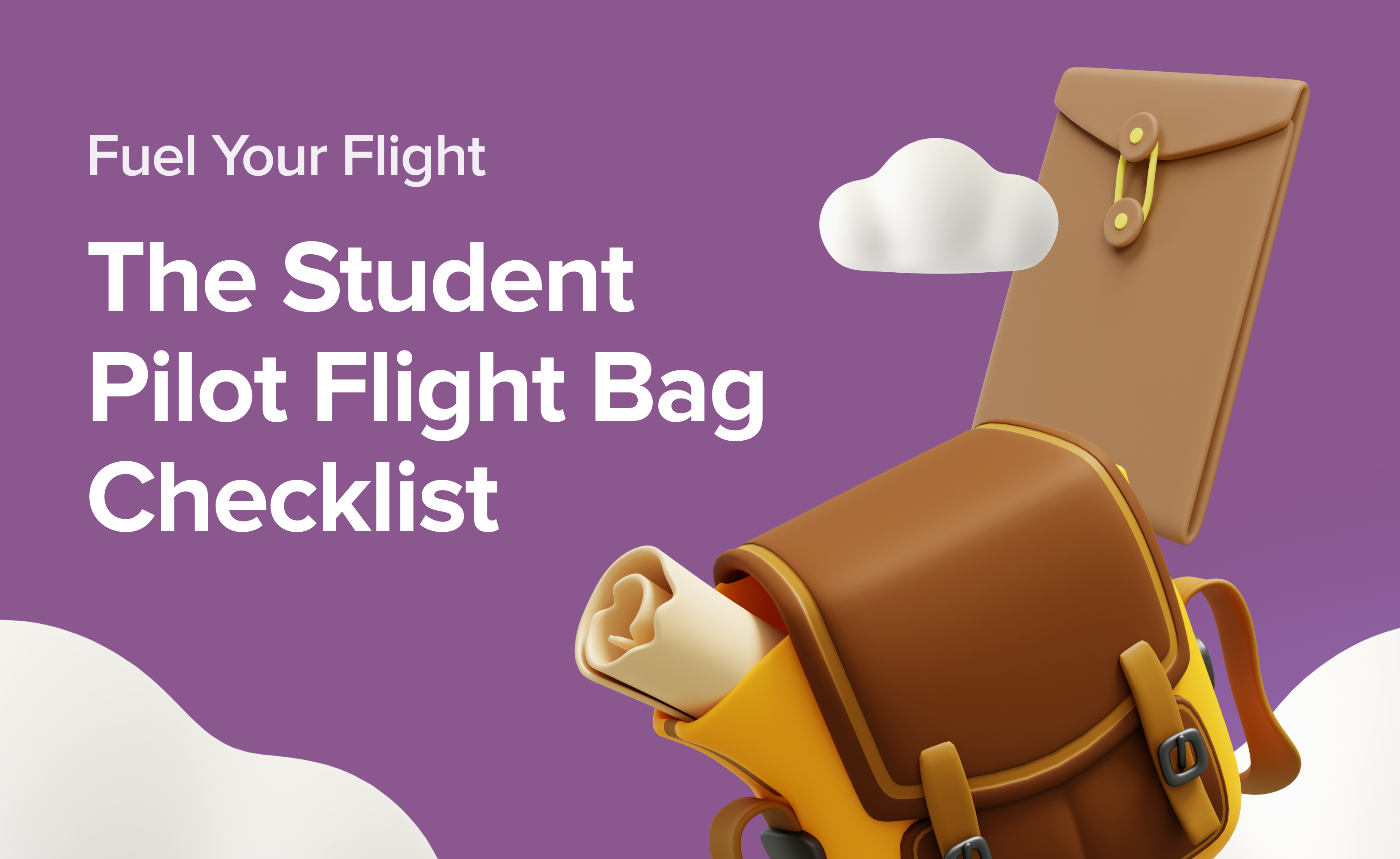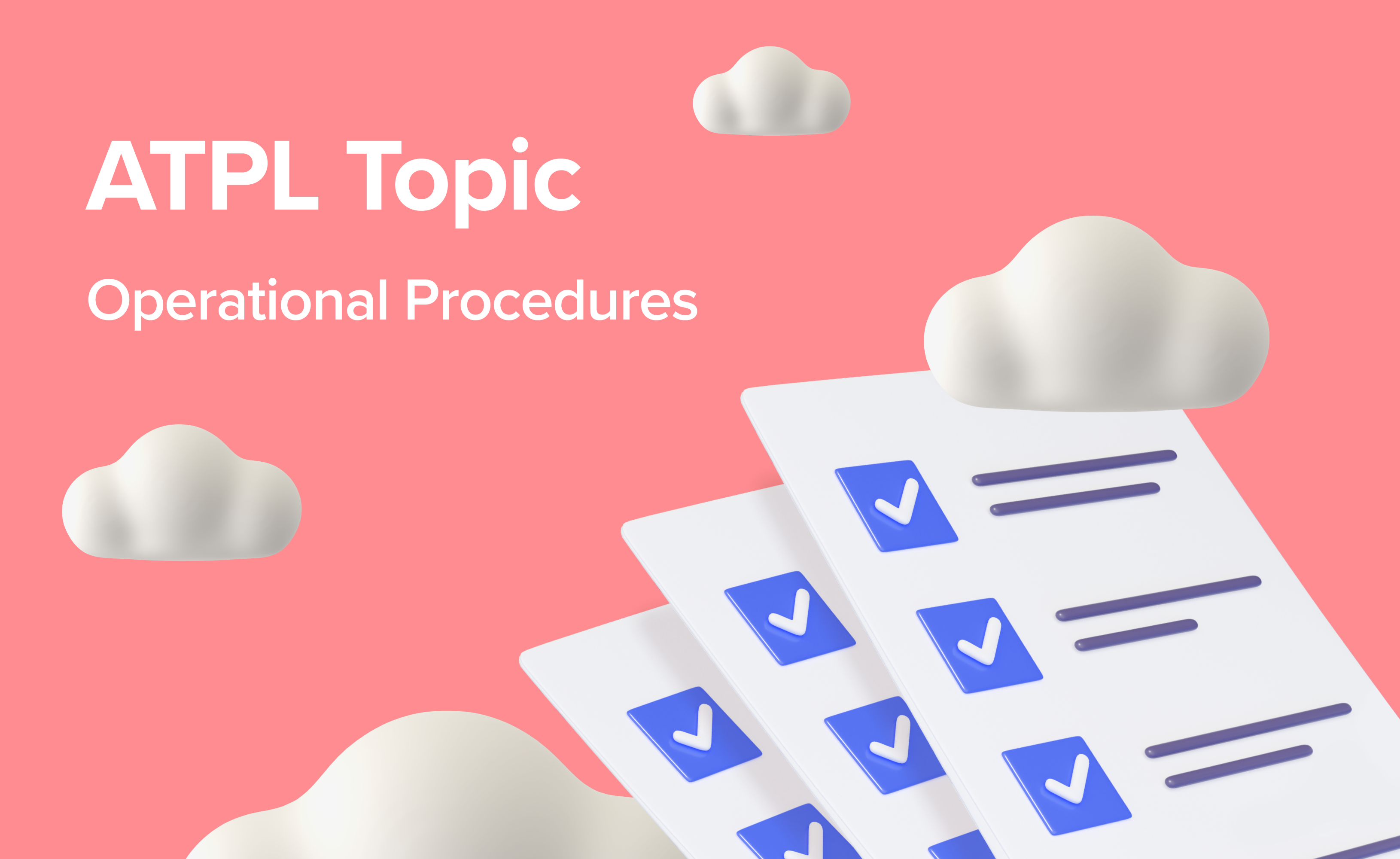From Textbooks to Take-off. 7 Wellness Tips During ATPL Prep
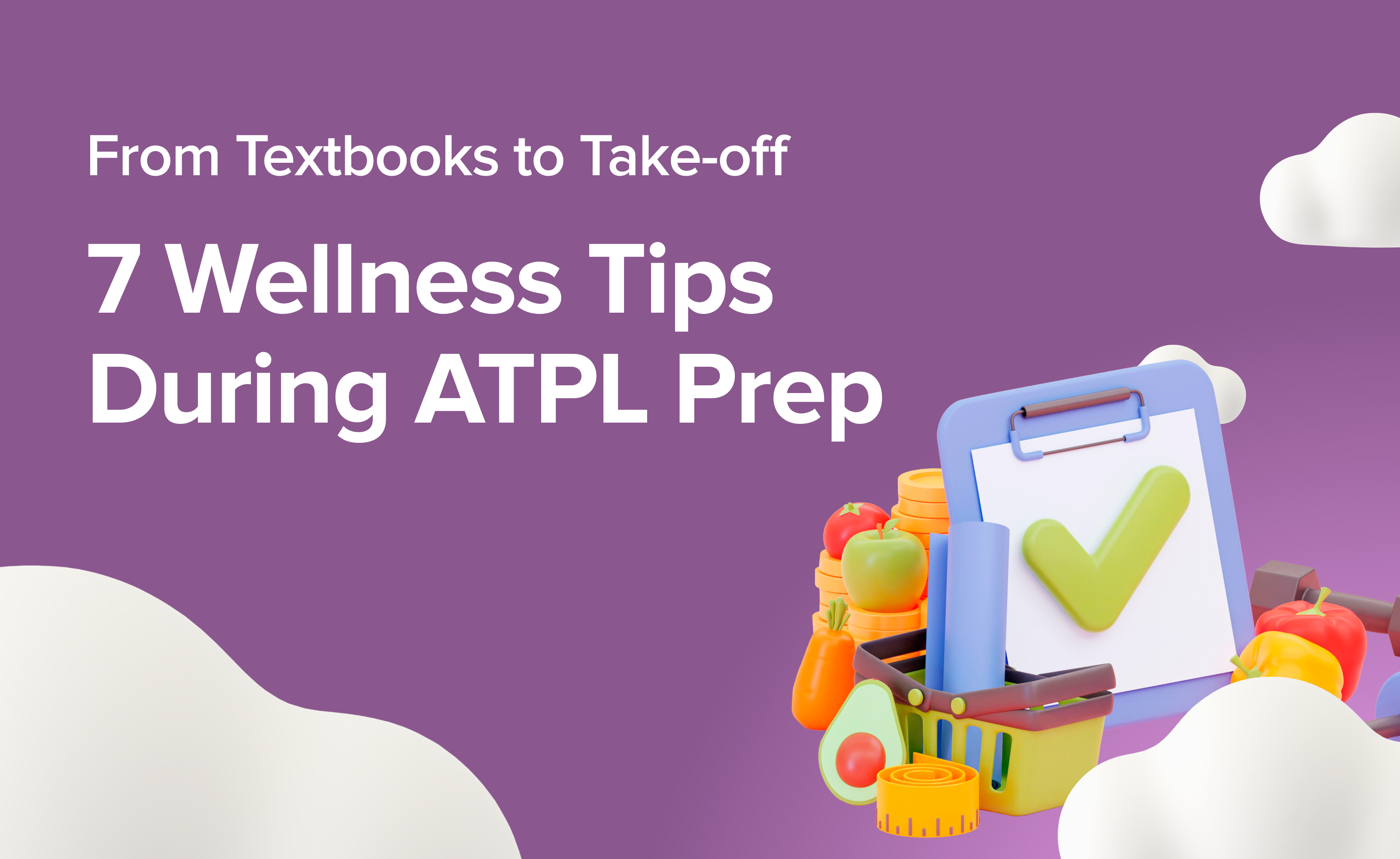
Right, you are, ATPL exam season – a sure-fire rollercoaster of emotions! We've all been there: excited about what's coming up, lots of information to handle, and a bit of worry. Amid all that cramming, it's easy to let self-care fall by the wayside. Besides, it is one of the most common mistakes that student pilots make — ignoring physical well-being.
But listen up, future commercial pilots! Just like an aircraft needs regular maintenance to fly smoothly, YOU need to look after your mental and physical health to reach your goals through ATPL prep.
While piloting doesn't demand the physique of an Olympian, a healthy lifestyle is essential for any aspiring pilot. Maintaining a balanced diet and physical activity goes beyond just meeting the medical certificate requirements for a pilot licence. It sets the foundation for a pilot's performance, and long-lasting career and ultimately, ensures flight safety.
The ATPL prep period with its intense focus and demanding schedule is the perfect time to establish these healthy ways of life. Think of it as a great opportunity to discover your limits and learn how to care for yourself.
Don't Get Grounded! Top Mistakes to Avoid During ATPL Prep
1. Exercise Regularly
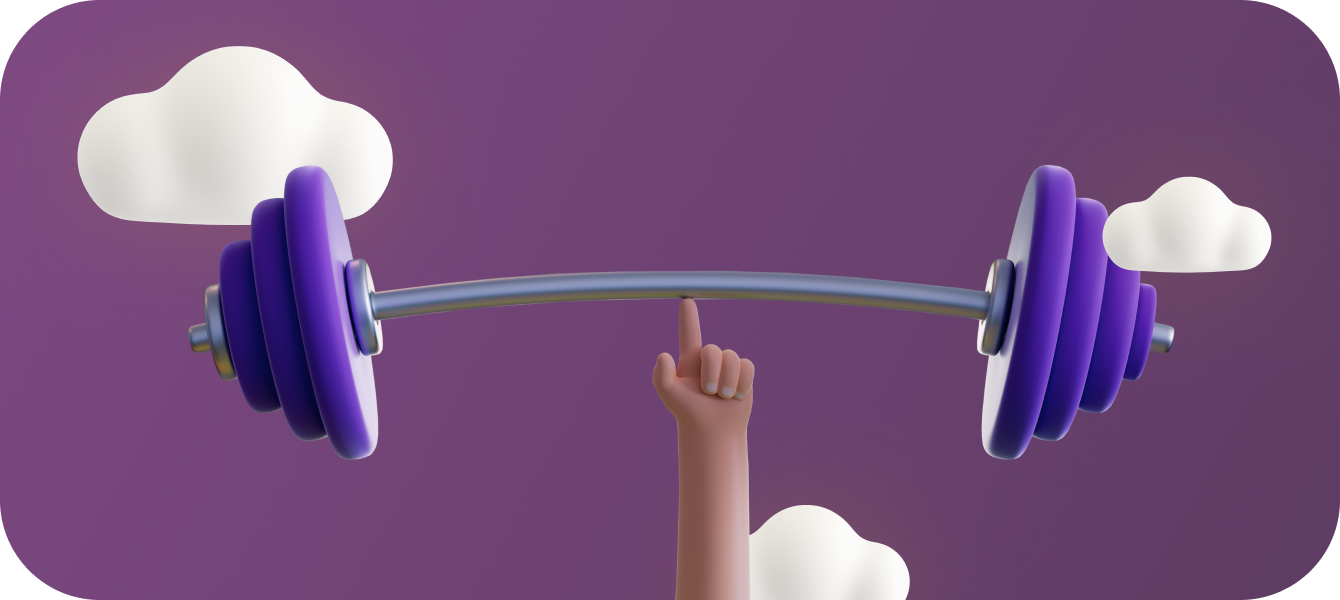
We all get it – regular exercise is good for you. But let's be honest, sometimes that knowledge gets buried under a pile of textbooks and the belief that “young and invincible” translates to “never needing a gym membership.” The truth is, putting fitness first isn't just about looking good, it's about achieving peak physical and mental health.
Physical activity and a balanced diet elevate cognitive abilities, making learning more effective. Amidst the pressure of deadlines and exams, sport acts as a stress reliever, promoting better sleep and reducing anxiety. It helps combat acute fatigue and builds resilience for long periods of study sessions.
But the benefits go beyond just fighting tiredness. Physical activity prevents musculoskeletal issues and aches often associated with a sedentary lifestyle.
Regular physical activity also strengthens your cardiovascular system, improving your blood pressure and stamina – crucial for flight training and handling potential stressors in the cockpit.
Besides, exercise is a natural mood booster, increasing the production of dopamine and other feel-good chemicals. This can help prevent depression and anxiety that can sometimes creep in during demanding training periods.
The good news is, that you don't have to become a gym rat. Here are some exercise types that are perfect for student pilots:
Cardio. Get your heart pumping with activities like running, swimming, or cycling. This improves your cardiovascular health and overall endurance. General guidelines recommend 150 minutes of moderate-intensity aerobic exercise each week.
Strength Training. Building muscle strength and core stability improves posture, reduces fatigue, and enhances coordination. Think of bodyweight exercises, weight lifting, or resistance bands. Plan for a minimum of two sessions focused on strength training each week.
Yoga. Don't underestimate the power of yoga! It improves flexibility, balance, and coordination – all essential skills for pilots. Plus, yoga can help manage stress and promote relaxation.
The key to long-term consistency is finding activities you enjoy. Choose something that keeps you motivated, whether it's hitting the gym, joining a sports team, or dancing in your living room.
2. Eat Healthy

As a student pilot juggling demanding studies and practical training, a healthy diet involves more than just what's on your plate. It's about adopting a holistic approach to nutrition and lifestyle, enabling you to prevent any medical conditions, both presently and as you move forward in life.
Here's how you can optimise your diet to boost cognitive function and support your journey towards getting a pilot licence:
7 Dietary Tips for Student Pilots
Eat Fatty Fish. Packed with Omega-3 fatty acids, these are essential for cognitive function. Think salmon, tuna, sardines, or mackerel.
Include Fruits and Vegetables. Rich in antioxidants and vitamins, these improve blood flow to the brain and support memory. Berries, leafy greens, and colourful vegetables are great choices.
Go for Whole Grains. Provide sustained energy release, keeping you focused throughout long periods of study. Opt for brown rice, quinoa, or whole-wheat bread.
Add Nuts and Seeds. Excellent sources of healthy fats, protein, and vitamin E – all beneficial for brain health. Almonds, walnuts, sunflower seeds, and chia seeds are good options.
Limit Processed Foods and Sugars. Processed foods and added sugars can lead to inflammation and oxidative stress, negatively impacting brain health. Opt for whole foods whenever possible and limit your intake of sugary snacks and beverages.
Practice Mindful Eating. Slow down and pay attention to your meals. Practising mindful eating can help you appreciate and enjoy your food more fully, while also preventing overeating.
Don't skip meals. Regular, balanced healthy food keeps your energy levels stable and your brain focused.
By adopting only these seven dietary tips for a balanced diet, you can fuel the brain for success during your pilot training. This approach will also ensure your pilot fitness when it's time to see the aviation medical examiner.
3. Stay Hydrated

Your body and brain need the right fuel to function at their peak – and that fuel is water! Studies have shown that even mild dehydration (around 1-2% of body weight loss) can have a significant impact on your cognitive function, affecting focus, decreasing alertness, causing impairing memory, and leading to difficulty concentrating. Imagine trying to master complex concepts of General Navigation or Principles of Flight with a sluggish brain!
Boost Your Brainpower: Explore 8 Proven Techniques to Master Your ATPL Studies.
So, how much water should you aim for?
There's no one-size-fits-all answer, as factors like activity level and climate play a role. However, a good general guideline is to drink around eight glasses of water daily. Listen to your body – if you feel thirsty, you're already slightly dehydrated.
Here are some additional tips to stay hydrated:
Carry a reusable water bottle and sip throughout the day.
Flavour your water with fruits, vegetables, or herbs to encourage intake.
Be mindful of hidden sources of fluid loss, like caffeine and alcohol, which can dehydrate you.
Monitor your urine colour – pale yellow is ideal, while darker shades indicate dehydration.
4. Get Enough Sleep

Seasoned airline pilots understand the importance of a good night's sleep – and for good reason. A well-rested mind is crucial for sharp focus, quick decision-making, and optimal pilot performance in the cockpit. This is especially true when dealing with jet lag, a common issue for professionals travelling across multiple time zones.
Did you know, that many airline pilots use the "one day per time zone" rule? This means gradually adjusting their sleep schedule by one hour for each time zone crossed. For example, travelling east across three time zones would involve going to bed three hours earlier each night until your body adjusts.
As a student pilot preparing for your ATPL exams, prioritising sleep from the very beginning is equally important. A well-rested mind will not only help you retain information more effectively but also enhance your focus during simulations and overall flight training.
By establishing healthy sleep habits now, you'll be well on your way to not only conquering your ATPL exams but also setting yourself up for a successful and sustainable pilot health and career.
Building a Healthy Sleep Routine in 5 Steps:
Consistency is Key. Go to bed and wake up at the same time every day, even on weekends. This helps regulate your body's natural sleep-wake cycle.
Create a Relaxing Bedtime Environment. Ensure your bedroom is dark, quiet, and cool. Avoid screen time (phones, laptops) for at least an hour before bed, as the blue light emitted can disrupt sleep patterns.
Develop a Calming Pre-Sleep Ritual. Take a warm bath, read a book, or practice relaxation techniques like deep breathing or meditation to wind down before bed.
Limit Caffeine and Alcohol. Avoid caffeine and alcohol close to bedtime, as they can disrupt sleep quality.
Aim for Optimal Sleep Hours. Most adults function best on 8 hours of sleep per night. However, listen to your body – some people may require slightly more or less.
Remember, a well-rested mind is a sharp mind, ready to navigate the complexities of aviation confidently.
5. Schedule Time for Breaks and Fun

Juggling long study sessions and exams can take a toll on your mental health. While the urge to cram information might be strong, planning breaks is crucial to maintain motivation and prevent burnout. Here are two effective strategies to maintain your focus and well-being during this intense period:
Short Breaks, Big Impact: Ditch the marathon study sessions! Taking short breaks every 15–20 minutes after an hour of studying is a game-changer. These mini-pauses allow your brain to recharge, helping you stay focused and retain information more effectively. Get some fresh air, do some stretches, or grab a healthy snack – anything that helps you de-stress and come back refreshed.
Reward Yourself: Positive reinforcement works wonders! After achieving specific academic goals, treat yourself to something you enjoy. Finished a few chapters? Did you ace a practice test? Celebrate your accomplishments! This could be watching your favourite movie, hanging out with friends, or indulging in a healthy treat.
Don't forget to stay connected to your passion! Schedule some flight time to keep your flying skills sharp and your motivation high.
So, how to incorporate these breaks?
Think of healthy activities like spending time in nature, going for walks, or participating in social gatherings. Engaging in hobbies, whether playing music, reading, or photography, can also be a great way to unwind.
Remember, scheduling time for relaxation and fun isn't a luxury, it's a necessity for a successful and sustainable ATPL training journey. A strong social support system can motivate you and provide emotional support during challenging times. By incorporating breaks and maintaining a healthy work-life balance, you'll be well on your way to conquering your ATPL exams and achieving your pilot dreams.
6. Maintain Self-Discipline
ATPL prep requires a marathon effort, not a sprint. Cultivating self-discipline is key to reaching your goals.
Embrace Time Management.
Each ATPL subject is complex and demands dedicated study time. Without proper time management, you risk dedicating too much time to some subjects and overlooking others. This imbalance can lead to burnout and a decline in motivation, information overload and overwhelming.
Mastering time management reduces stress and boosts efficiency. Create a study schedule that prioritises tasks, allocates realistic time slots, and includes breaks. Avoid multitasking – focus on one subject at a time for better comprehension.
Learning Style Matters. People learn differently. Are you a visual learner who thrives on flashcards and diagrams? An auditory learner who benefits from lectures and audiobooks? Identify your learning style and adapt your study methods accordingly.
Healthy Choices for a Healthy Mind. Your overall well-being impacts your focus and learning. Limit caffeine and alcohol, which disrupt sleep; avoid smoking for optimal lung function; and prioritise good personal hygiene to enhance focus and confidence.
Discover more insider strategies for success from the article How to Nail Your ATPL Exams in 2024.
7. IMSAFE Checklist
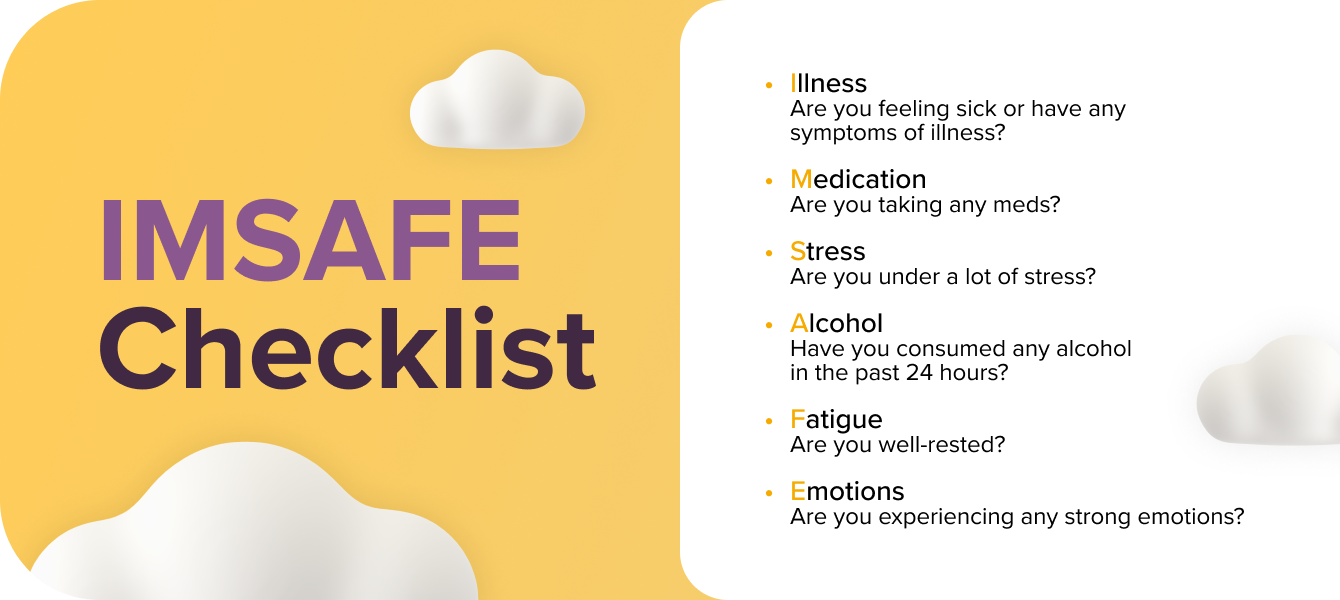
Safety is paramount in the aviation industry, and airline pilots around the world employ various tools to mitigate risk before every flight. One common practice is the Federal Aviation Administration IMSAFE checklist.
This checklist provides a valuable framework for student pilots to assess their well-being during ATPL exam preparation season and before every flight, just like seasoned professionals.
IMSAFE mnemonic stands for:
Illness. Are you feeling sick or have any symptoms of illness? Even a minor illness can impair your judgment and reaction time while flying.
Medication. Are you taking any medications that might affect your ability to perform safely? Some medications can cause drowsiness, dizziness, or other side effects that can be dangerous in the cockpit.
Stress. Are you under a lot of stress? Stress can cloud your judgment and make it difficult to focus on the task at hand.
Alcohol. Have you consumed any alcohol in the past 24 hours? Alcohol is a depressant that can impair your judgment and coordination, even after you feel sober.
Fatigue. Are you well-rested? Fatigue can lead to drowsiness, decreased alertness, and slower reaction times – all of which are dangerous for pilots.
Emotion: Are you experiencing any strong emotions, such as anger, sadness, or anxiety? These emotions can impact your judgment and decision-making abilities.
Conclusion
The path to becoming a pilot is an exciting one, but it can also be demanding. Here's the secret weapon you might be overlooking – your health!
A healthy lifestyle keeps you sharp during long study sessions, improves focus during flight simulations, and boosts your overall energy levels. Proper sleep ensures quick reflexes and sound decision-making, crucial qualities for any pilot. By prioritising a balanced diet, regular exercise, and quality sleep, you're investing in a successful and sustainable pilot training journey.
Armed with the knowledge of self-care and mental health management, you're well-equipped to tackle ATPL exam season.
